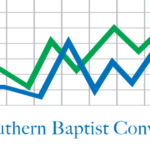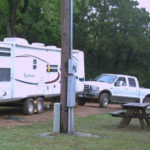Posted: 6/06/03
Survey says there's no cure-all for church growth
By Leslie Scanlon
Religion News Service
LOUISVILLE, Ky. (RNS)–Sometimes when a congregation's having trouble, folks look for the quick fix. By changing the music or moving to the suburbs or adding new programs, they think, everything will be OK.
But researchers involved in a large-scale study of U.S. congregations have found there's no one secret to success. Strong congregations can be large or small, urban or rural, and there's no simple formula for what works. But they say congregations that want to become extraordinary need to develop multiple strengths–to figure out what they do best, and to focus on those things.
The U.S. Congregational Life Survey is the largest profile of worshippers and their congregations ever produced in the United States–a survey of more than 300,000 worshippers from more than 2,200 congregations, taken in April 2001 as part of a broader body of research done in the United States, England, Australia and New Zealand. The congregations surveyed came from more than 50 faith groups, including non-denominational and Pentecostal congregations, Protestants and Catholics, Greek Orthodox, Jews, Buddhists and the Church of Jesus Christ of Latter-day Saints.
Cynthia Woolever, director of the U.S. Congregational Life Survey, argues that congregations can't legitimately use their size (“We're too small”) or affiliation (“We can't grow because our denomination is losing members”) as a reason not to be strong and vibrant.
The survey found examples of successful congregations of all sizes, in cities and in rural areas, in many different situations–leading Woolever and her colleagues to conclude, “Churches just really have to say, 'What's going to work for us in our location with the people who are here?'”
Among the most recent findings of the survey, as explained by Woolever:
Size does not determine a congregation's success. “Meaningful worship happens in congregations of all sizes,” not just those with the resources to put on what Woolever called “the best show.” In fact, people are more likely to participate actively in small congregations–to attend a Bible study or hold a leadership position, for example–than in bigger ones.
![]() Conservative congregations and those that are historically black tended to do better on a number of measures than did mainline Protestant and Catholic churches. Conservative and historically black congregations were more likely to be places that helped people grow spiritually, where people found worship to be meaningful, where they actively participated and felt a sense of belonging.
Conservative congregations and those that are historically black tended to do better on a number of measures than did mainline Protestant and Catholic churches. Conservative and historically black congregations were more likely to be places that helped people grow spiritually, where people found worship to be meaningful, where they actively participated and felt a sense of belonging.
![]() Mid-sized congregations–those whose worship attendance was between 100 and 350–were given the best ratings in caring for children and youth. Catholic parishes scored the lowest in this, and conservative Protestant churches the highest.
Mid-sized congregations–those whose worship attendance was between 100 and 350–were given the best ratings in caring for children and youth. Catholic parishes scored the lowest in this, and conservative Protestant churches the highest.
![]() Several factors seemed to predict growth. The strongest predictors for whether a congregation would get bigger were if the congregation did a good job caring for children and youth, had high levels of participation in small groups and other activities, and seemed welcoming to new people.
Several factors seemed to predict growth. The strongest predictors for whether a congregation would get bigger were if the congregation did a good job caring for children and youth, had high levels of participation in small groups and other activities, and seemed welcoming to new people.
![]() People who attend small congregations are more likely than those from mid-size or larger congregations to say they're growing spiritually and to feel empowered to use their gifts and talents for leadership. People also report a strong sense of belonging in small congregations.
People who attend small congregations are more likely than those from mid-size or larger congregations to say they're growing spiritually and to feel empowered to use their gifts and talents for leadership. People also report a strong sense of belonging in small congregations.
![]() Worshippers who are younger than the average age of those attending worship also have a strong sense of belonging, and “the sense of home is particularly important to younger people,” Woolever said. Congregations whose members are younger also tend to do a better job caring for children and teenagers.
Worshippers who are younger than the average age of those attending worship also have a strong sense of belonging, and “the sense of home is particularly important to younger people,” Woolever said. Congregations whose members are younger also tend to do a better job caring for children and teenagers.
![]() When focusing on the community–everything from being involved in community service to voting and making charitable contributions–“size doesn't matter,” but mainline Protestant congregations have the strongest community focus, as do congregations with older worshippers, Woolever said.
When focusing on the community–everything from being involved in community service to voting and making charitable contributions–“size doesn't matter,” but mainline Protestant congregations have the strongest community focus, as do congregations with older worshippers, Woolever said.
![]() Small congregations, conservative Protestant churches and historically black congregations have the strongest record of faith-sharing–placing the strongest emphasis on talking to others about their faith, inviting people to worship and reaching those with no connection to a congregation.
Small congregations, conservative Protestant churches and historically black congregations have the strongest record of faith-sharing–placing the strongest emphasis on talking to others about their faith, inviting people to worship and reaching those with no connection to a congregation.













We seek to connect God’s story and God’s people around the world. To learn more about God’s story, click here.
Send comments and feedback to Eric Black, our editor. For comments to be published, please specify “letter to the editor.” Maximum length for publication is 300 words.